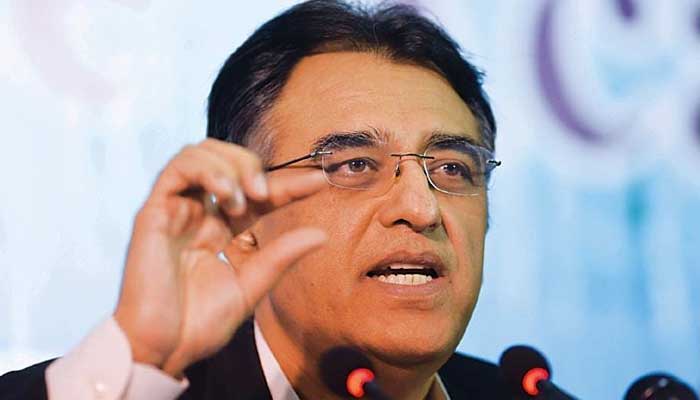Pakistan to get 17 million dozes of AstraZeneca vaccine, NCOC chief says
The delivery of the British-manufactured coronavirus vaccine will begin in February, Asad Umar says
Minister for Planning, Development and Special Initiatives, Asad Umar on Saturday announced that Pakistan will be receiving doses of the British-manufactured AstraZeneca coronavirus vaccine this year.
He said he has received a letter from COVAX in this regard, which has indicated that 17 million doses will be given to Pakistan in the first half of 2021.
"Good news on COVID vaccine front. Received a letter from COVAX of [an] indicative supply of up to 17 million doses of AstraZeneca in 1st half 2021," he said.
Of the total 17 million doses, it is expected that six million will arrive by March. The delivery will begin in February, the minister said, without specifying any dates.
"We signed with COVAX nearly eight months back to ensure availability," he added.
Of the 190 participating economies, Pakistan is among the 92 that qualify for the World Health Organization’s (WHO) COVAX initiative that ensures “rapid and equitable access to COVID-19 vaccines for all countries, regardless of income level”.
The development comes as a special plane is ready to fetch the first batch of the coronavirus vaccines that China has gifted to Pakistan. It is speculated that the vaccine to arrive tomorrow (Sunday) will be the one made by Sinopharm.
Earlier this month, the Drug Regulatory Authority of Pakistan (DRAP) gave authorisation for both — the Chinese-manufactured Sinopharm, and the Oxford-AstraZeneca vaccine.
How the AstraZeneca vaccine works
The Oxford-AstraZeneca vaccine is made from a weakened version of a common cold virus, known as adenovirus, from chimpanzees, and has been modified to look more like the coronavirus — although it cannot cause the illness.
When the vaccine is injected into a human body, it prompts the immune system to make antibodies and trains it to attack any coronavirus infection. Interim data showed that the vaccine’s efficacy in preventing symptomatic infections was 70.4%.
The Oxford-AstraZeneca vaccine is more suitable for developing countries as it can be stored in a normal fridge for six months, making it much easier to distribute. It is also cheaper to make.
The vaccine was first approved for emergency use by the United Kingdom government.
Pakistan's coronavirus situation
During the last 24 hours, 2,179 COVID-19 cases were reported across Pakistan, according to data issued by NCOC.
In this period, 65 people died from the disease, with most deaths occurring in Punjab (35) followed by Sindh (17).
Out of the 65 deaths, 36 died on ventilators.
The country has so far reported 543,214 cases and 11,623 deaths.
-
Security forces gun down 30 terrorists in multiple IBOs in KP: ISPR
-
MQM-P calls for new province in Sindh
-
US report validates Pakistan military edge over India: PM
-
Banned TTP poses serious threat to Pakistan security: UNSC panel
-
CM Afridi clarifies remarks on by-poll after ECP requests army deployment
-
Dubai sees 3.2m Pakistani passengers in 2025 as airport sets new milestone
-
Security forces kill 23 Indian proxy terrorists in KP's Kurram
-
Pakistan to construct island to boost oil exploration: report












